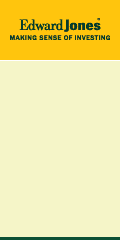 For the third month in a row total U.S. employment rolls shrank - often a telltale sign that the economy has jolted dangerously into reverse.
For the third month in a row total U.S. employment rolls shrank - often a telltale sign that the economy has jolted dangerously into reverse.
At the same time, the jobless rate rose three-tenths of a percentage point, a sharp increase usually associated with times of deep economic stress.
The grim picture described by the Labor Department on Friday provided stark evidence of just how much the jobs market has buckled under the weight of the housing, credit and financial crises. Businesses and jobseekers alike are feeling the pain.
"It is now very clear that the fat lady has sung for the economic expansion. The country has slipped into a recession," said Stuart Hoffman, chief economist at PNC Financial Services Group. Indeed, there is widening agreement that the first recession since 2001 has arrived. Even Ben Bernanke, in a rare public utterance for a Federal Reserve chairman, used the "r" word, acknowledging for the first time this week that a recession was possible.

Job losses were widespread last month, hitting workers at factories, construction companies, retailers, banks, real-estate firms and even temporary-help agencies. Also mortgage brokers, hotels, computer design shops, accounting firms, architecture and engineering companies, legal services, airlines and other transportation as well as telecommunications companies.
Those cuts swamped employment gains elsewhere, including at hospitals and other heath-care sites, educational services, child day-care providers, bars and restaurants, insurance companies, museums, zoos and parks. And the government, which is almost always up.
In fact, private employers have shed jobs for four straight months, though December showed an overall gain for the economy because the government increase outweighed the private loss.
March's losses were the most since the same month in 2003, when companies were still struggling to recover from the last recession. Adding to the angst: Revised figures showed losses were actually deeper than first reported for both January and February.

All told, the economy now has lost 232,000 jobs in the first three months of this year.
On Wall Street, investors took the weak employment figures in stride. The Dow Jones industrials lost just 16.61 points, while other indexes edged higher.
All the economy's problems are forcing people and businesses to hunker down, crimping spending and hiring, a vicious cycle.
"Across the board, businesses have become very, very conservative," said Joel Naroff, president of Naroff Economic Advisors. More downbeat about their own sales prospects because of cautious consumers, employers are cutting back. "It only makes sense for them to run leaner if we are going into a recession or already in one" as Naroff now believes.
The new employment figures were much weaker than economists were expecting. They were anticipating a drop of 50,000 payroll jobs.
Michael Gregory, senior economist at BMO Capital Markets Economics, said the employment report was "emitting recession signals."
The national unemployment rate of 5.1 percent, relatively modest by historical standards, is nonetheless the highest since September 2005, following the devastating blows of the Gulf Coast hurricanes.
Some groups are feeling more of the strains from the economy's current woes. The unemployment rate for Hispanics, for instance, jumped to 6.9 percent in March, the highest in over four years. The rate for blacks climbed to 9 percent, a two-month high.